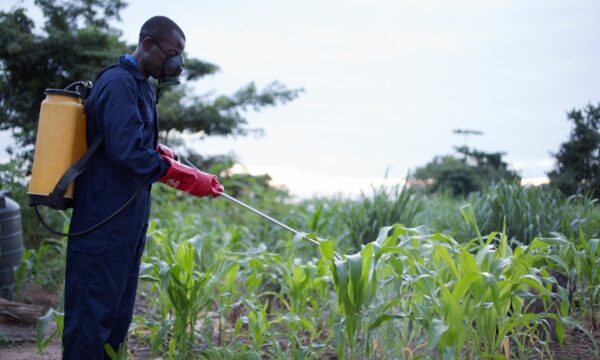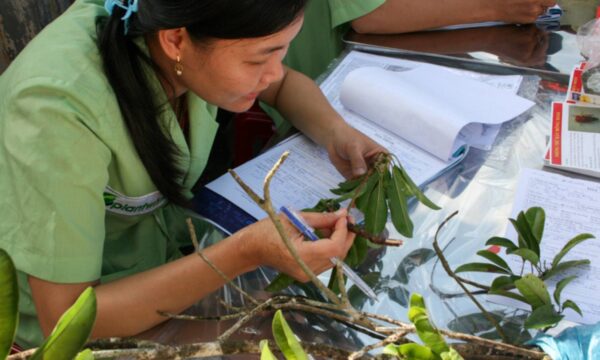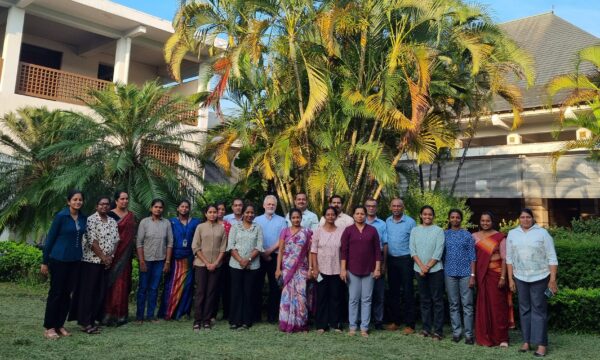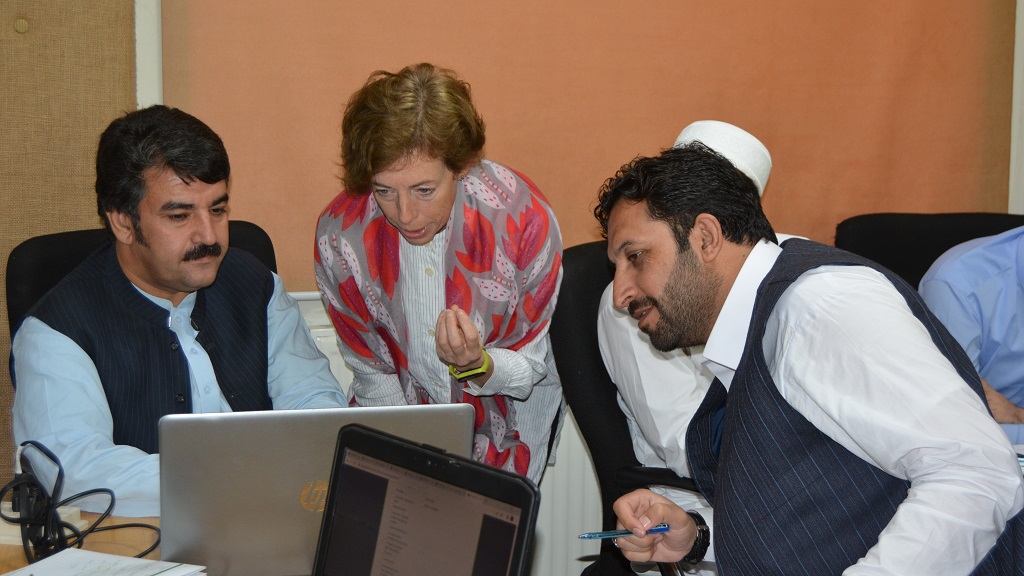
A pest risk tools training for PlantwisePlus partners and stakeholders recently took place in Pakistan. The CABI-organised session covered the Horizon Scanning and Pest Risk Analysis platforms.
Growing globalisation, trade and in particular, the international movement of plant commodities, increase the risk of the spread of plant pests. Introduced pests can lower crop yields and result in other economic and environmental impacts. The spread of pests from one geographical area to another is an international concern.
In order to determine whether a particular organism represents a plant health risk to a country, whether it needs to be regulated, and to assist in the selection of appropriate phytosanitary measures to prevent introduction, CABI has developed the Horizon Scanning and Pest Risk Analysis Tools using extensive biological, scientific and economic data compiled in the CABI Compendium. These tools provide a basis for decision-making that may impact international trade by ensuring the necessary safeguarding measures are put in place to prevent the introduction of new plant pests across international borders. The Horizon Scanning Tool can be used to identify potential Invasive Alien Species (IAS) that are not present in a country, while the Pest Risk Analysis Tool enables detailed assessment of the higher priority risks.
These digital tools have already been introduced to Pakistan since the inception of PlantwisePlus as an effective means of identifying and addressing potential threats to crops, livestock, and the environment.
CABI, under PlantwisePlus, arranged a three-day training workshop for the programme’s partners and stakeholders at Rawalpindi, Pakistan on 2-4 May.
A total of 40 participants from PlantwisePlus partners, including the Pakistan Agriculture Research Council (PARC), the Department of Plant Protection (DPP) being the National Plant Protection Organization (NPPO), agriculture research and extension departments from all six provinces including Punjab, Khyber Pakhtunkhwa (KP), Sindh, Baluchistan, Gilgit Baltistan (GB), Azad Jammu and Kashmir (AJK) and stakeholders including Crop Life Pakistan and Pakistan Crop Protection Association (PCPA) attended the workshop, providing the technical expertise needed for the pest risk assessments. The experts have their speciality in the field of entomology and plant pathology. Based on their expertise, the training participants were divided into eight groups, later assigned to a specific topic for conducting a PRA as their practical exercise. These topics were chosen after consulting Mr Sohail Shahzad, Director of Quarantine, DPP Pakistan.
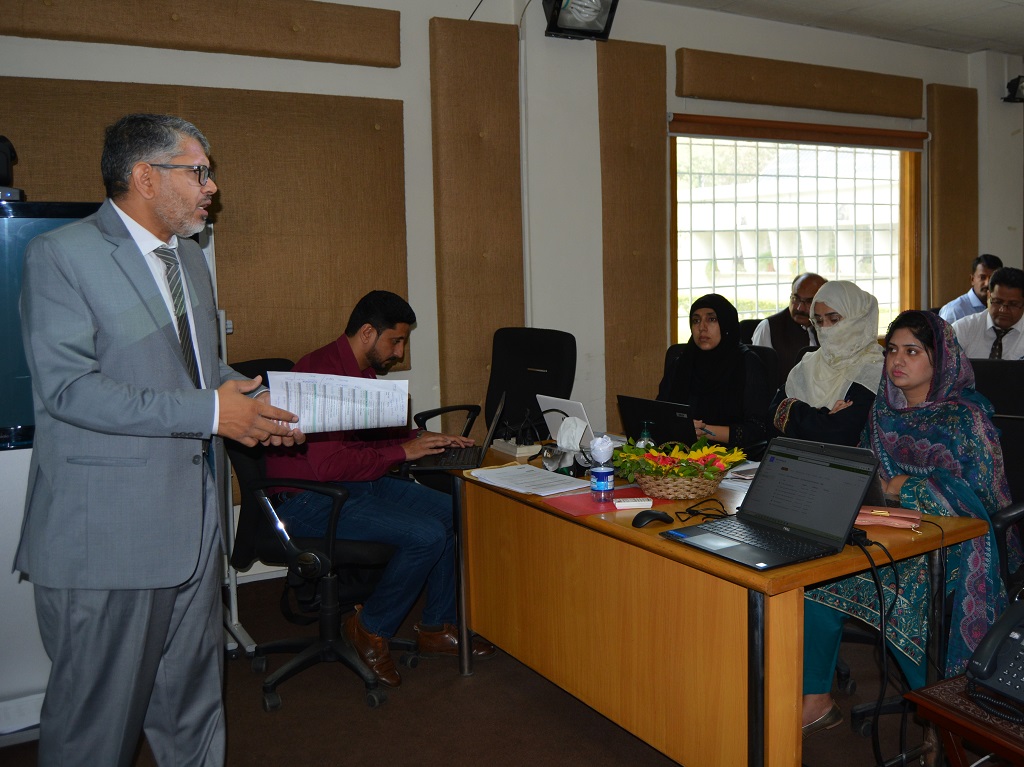

The training programme aimed to equip agricultural researchers, policy-makers, and industry professionals with the necessary skills and knowledge to identify and devise strategies for pest and disease threats. Participants were guided through the steps and techniques for applying the tools effectively. In addition, the participants were also introduced to a range of other digital tools that CABI has introduced under Plantwise and PlantwisePlus programmes, including the PlantwisePlus Knowledge Bank and Plantwise Factsheet Library App, CABI Academy (Crop Pest Diagnosis and Crop Pest Management courses), Fertilizer Optimizer and Crop Sprayer Apps, and also the CABI Compendium.
The PlantwisePlus country coordinator, Dr Muhammad Naeem Aslam, gave opening remarks. He welcomed the participants to this important event and expressed gratitude for the assistance from their institutions.
Ms Lucinda Charles, Senior Editor, Compendium Programme, gave an overview of the CABI Digital Library and its various Compendium channels of datasheets for participants to use for key pest, crop and country information.
Following a demonstration of the Horizon Scanning Tool, Mr. Abdul Rehman (CABI’s Deputy Director of Programmes) explained how this tool has been used to identify invasive species threats to Pakistan. He also shared the results from the last horizon scanning workshop which focused on the tomato crop for Pakistan.
The Pest Risk Analysis (PRA) purpose and process was outlined by Ms Lucinda Charles, who explained that CABI’s PRA Tool closely follows international guidelines to enable its users to follow a systematic approach to assessing the risks associated with the introduction of pests to new areas. The tool also guides the selection of appropriate risk management measures and prompts the compilation of scientific evidence to justify PRA conclusions.
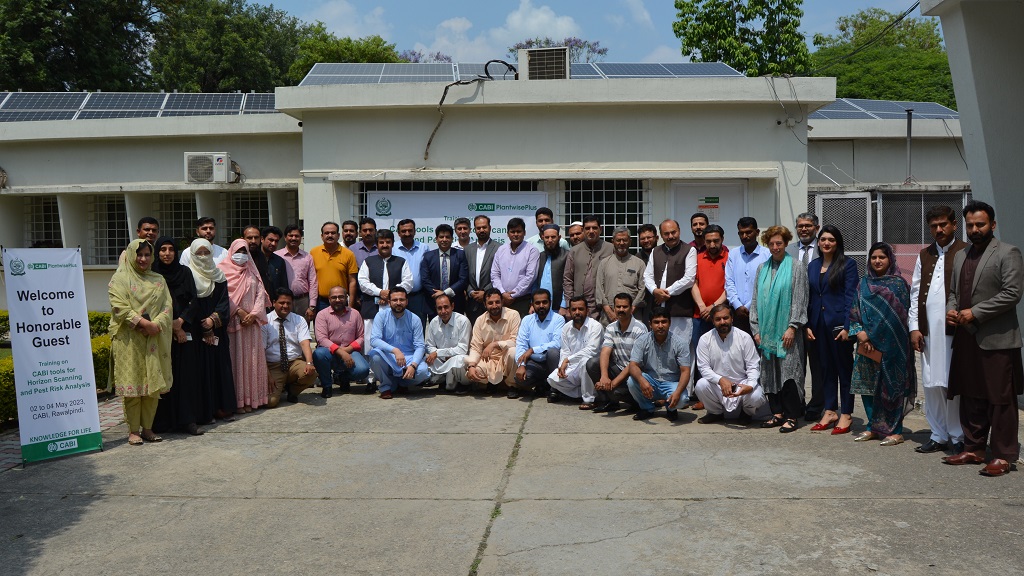
The training programme included interactive sessions and practical exercises to help participants effectively understand and apply the tools and techniques. The participants also had the opportunity to exchange ideas and share experiences, providing valuable networking opportunities.
The programme was led by Ms Lucinda Charles, assisted by Mr Abdul Rehman and PlantwisePlus team. The trainers shared their expertise and insights with the participants, providing valuable guidance and support throughout the training programme.
Through this workshop, the participants gained valuable knowledge and skills to help them effectively identify and manage new pests threats. The programme also helped foster collaboration and networking among participants, which will contribute to developing effective agricultural development and management strategies in the future. The training ended with certificate distribution among participants and a vote of thanks from Dr. Babar Ehsan Bajwa, Senior Regional Director, CABI.
Further reading
CABI’s range of invasive species knowledge resources and tools have been developed for a variety of users such as environmental managers, researchers, farmers, plant protection officers, policy makers and more.
CABI Compendium – includes the world’s most comprehensive collection of datasheets on crop pests and invasive species
Horizon Scanning Tool – designed to identify and categorise new pest threats to a country or region
Pest Risk Analysis Tool – provides a framework for assessing the plant health risk associated with a new plant commodity pathway, individual pest or organism proposed for import, and selecting risk management measures to support safe trade
PlantwisePlus supports low and lower-middle-income countries to predict, prepare themselves for and prevent plant health threats in a changing climate – reducing crop losses and empowering farmers to increase income, food security and food safety by producing more and higher quality food.
PlantwisePlus will therefore focus on: (a) strengthening detection of and response to pest outbreaks; (b) providing public and private agricultural service providers with better digital advisory tools to support farmers in sustainable crop management; (c) enhancing the availability of nature-positive and low-risk plant protection products to reduce reliance on high-risk farm inputs; (d) increasing consumer demand for and supply to local markets of safer, higher quality and locally produced food.
All images ©CABI
Related News & Blogs
How do pest risk registers address the spread of plant pests in Africa?
Pest risk registers can help to solve problems in agriculture, addressing the growing global threat of plant pests. Moreover, changing weather patterns, led by rising temperatures, are causing them to reproduce faster and expand into new regions. In ad…
10 July 2025

